41 start with M start with M
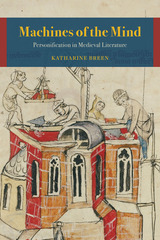
In Machines of the Mind, Katharine Breen proposes that medieval personifications should be understood neither as failed novelistic characters nor as instruments of heavy-handed didacticism. She argues that personifications are instead powerful tools for thought that help us to remember and manipulate complex ideas, testing them against existing moral and political paradigms. Specifically, different types of medieval personification should be seen as corresponding to positions in the rich and nuanced medieval debate over universals. Breen identifies three different types of personification—Platonic, Aristotelian, and Prudentian—that gave medieval writers a surprisingly varied spectrum with which to paint their characters.
Through a series of new readings of major authors and works, from Plato to Piers Plowman, Breen illuminates how medieval personifications embody the full range of positions between philosophical realism and nominalism, varying according to the convictions of individual authors and the purposes of individual works. Recalling Gregory the Great’s reference to machinae mentis (machines of the mind), Breen demonstrates that medieval writers applied personification with utility and subtlety, employing methods of personification as tools that serve different functions. Machines of the Mind offers insight for medievalists working at the crossroads of religion, philosophy, and literature, as well as for scholars interested in literary character-building and gendered relationships among characters, readers, and texts beyond the Middle Ages.
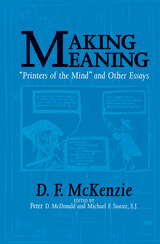
Making Meaning reflects McKenzie's virtuosity as a traditional bibliographer and reveals how his thought-provoking scholarship made him a driving force in the genesis and development of the new interdisciplinary field of book history. His refusal to recognize the traditional boundary between bibliography and literary history re-energized the study of the social, political, economic, and cultural aspects of book production and reception.
The editors' introduction and headnotes situate McKenzie's innovative and controversial thinking in the debates of his time.

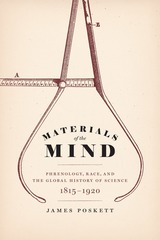
Phrenology was the most popular mental science of the Victorian age. From American senators to Indian social reformers, this new mental science found supporters around the globe. Materials of the Mind tells the story of how phrenology changed the world—and how the world changed phrenology.
This is a story of skulls from the Arctic, plaster casts from Haiti, books from Bengal, and letters from the Pacific. Drawing on far-flung museum and archival collections, and addressing sources in six different languages, Materials of the Mind is an impressively innovative account of science in the nineteenth century as part of global history. It shows how the circulation of material culture underpinned the emergence of a new materialist philosophy of the mind, while also demonstrating how a global approach to history can help us reassess issues such as race, technology, and politics today.
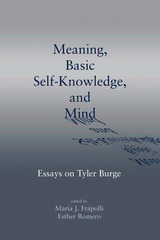
The authors of the eleven papers here expound their versions of this position and go on to critique Burge's version. Together with Burge's replies, this volume offers a major contribution to contemporary philosophy.
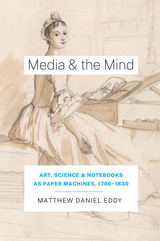
We often think of reason as a fixed entity, as a definitive body of facts that do not change over time. But during the Enlightenment, reason also was seen as a process, as a set of skills enacted on a daily basis. How, why, and where were these skills learned? Concentrating on Scottish students living during the long eighteenth century, this book argues that notebooks were paper machines and that notekeeping was a capability-building exercise that enabled young notekeepers to mobilize everyday handwritten and printed forms of material and visual media in a way that empowered them to judge and enact the enlightened principles they encountered in the classroom. Covering a rich selection of material ranging from simple scribbles to intricate watercolor diagrams, the book reinterprets John Locke’s comparison of the mind to a blank piece of paper, the tabula rasa. Although one of the most recognizable metaphors of the British Enlightenment, scholars seldom consider why it was so successful for those who used it. Each chapter uses one core notekeeping skill to reveal the fascinating world of material culture that enabled students in the arts, sciences, and humanities to transform the tabula rasa metaphor into a dynamic cognitive model. Starting in the home, moving to schools, and ending with universities, the book reconstructs the relationship between media and the mind from the bottom up. It reveals that the cognitive skills required to make and use notebooks were not simply aids to reason; rather, they were part of reason itself.
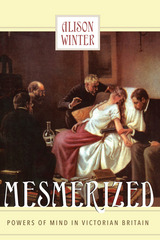
"Dazzling. . . . This splendid book . . . gives us a new form of historical understanding and a model for open and imaginative reading."—James R. Kinkaid, Boston Globe
"A landmark in the history of science scholarship."—John Sutherland, The Independent
"It is difficult to imagine the documentary side of the story being better done than by Winter's well-researched and generously illustrated study. . . . She is a lively and keen observer; and her book is a pleasure to read purely for its range of material and wealth of detail. . . . Fruitful and suggestive."—Daniel Karlin, Times Literary Supplement
"An ambitious, sweeping and fascinating historical study. . . . Beautifully written, thoroughly researched, and well-illustrated."—Bernard Lightman, Washington Times

Fusing the methods of comparative literature, intellectual history, and philosophical analysis, Harold Skulsky explores a motif that has fascinated storytellers since antiquity: the miraculous transformation of a character into a plant, an animal, or a different human being.
The thesis of the study is that the fantasy of metamorphosis challenges the narrator and his audience to confront certain basic anxieties about the human condition: Is the mind reducible to physical properties? What constitutes personhood? How does physical form affect personal identity and continuity of the self?
Testing instances in which these and related perplexities appear in literature, Skulsky systematically and provocatively interprets ten major illustrative texts drawn from diverse epochs and languages, including the works of Homer, Ovid, Apuleius, Marie de France, Dante, Donne, Spenser, Keats, Kafka, and Woolf. Through Skulsky's masterly analysis the victims of metamorphosis in narrative literature--whether werewolf, ass, beetle, swine, or tree--provide a profound insight into the complexities of human experience.
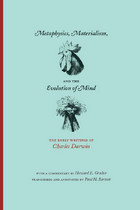
First published in 1974 as a companion volume to Darwin on Man by Howard E. Gruber, Paul Barrett’s transcriptions of Darwin’s M and N notebooks served to shed new light on the evolutionist’s methods and motivation.
According to Stephen Jay Gould in the New York Times Book Review, “Darwin kept [these notebooks] primarily in 1838, when he was 29 years old. In them, he recorded his early conviction of evolutionary continuity between humans and all other animals. . . . These notebooks display all the features of humanistic intellect that his detractors denied. We find erudition in his comments on Plato, Locke, Hume, Adam Smith, Whewell, Burke, Montaigne, Lessing and Spencer. . . . We appreciate an artistic bent in his delight with nature and her prophet Wordsworth. . . . We grasp the breadth of his bold attempt to clothe all human thought and behaviour in a new evolutionary garb. . . . Charles Darwin was reconstructing the world and he knew exactly what he was doing.”
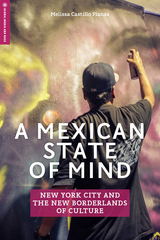

The Mind and Art of Victorian England was first published in 1976. Minnesota Archive Editions uses digital technology to make long-unavailable books once again accessible, and are published unaltered from the original University of Minnesota Press editions.
In a series of ten essays and a generous selection of illustrations, many in color, this volume depicts and assesses the mind and art of Victorian England. Multidisciplinary in approach, the essays deal with a variety of aspects in the history of the Victorian age.
Professor Altholz, the volume editor, writes: "It was an age not of revolution but of reform; political reform which admitted first the middle and then the working classes to the dominant share of the suffrage; economic and social reforms which proclaimed the triumph of laissez-faire while laying the foundations of the welfare state; moral reforms attempted if not achieved through education and religious revival; aesthetic reforms proposed if not achieved and, even in their failure, adding to the richness and diversity of Victorian England. It was an age whose problems cried out for reform; and, despite the prevailing complacency, virtually all the great Victorians were critics of their age. Their criticisms were diverse and often mutually incompatible, with each other -- and their public -- but they shared a high seriousness which gave character and substance to the flowering of their culture. Such was the Victorian age: the high-water mark of English history, the maturation of British culture, and the seedbed of our problems and our discontents."
The illustrations include color reproductions of some of the works discussed by Melvin Waldfogel in his essay "Narrative Painting," and a selection of architectural engravings and photographs.

How do people learn nonnative languages? Is there one part or function of our brains solely dedicated to language processing, or do we apply our general information-processing abilities when learning a new language? In this book, an interdisciplinary collaboration of scholars and researchers presents an overview of the latter approach to adult second language acquisition and brings together, for the first time, a comprehensive picture of the latest research on this subject.
Clearly organized into four distinct but integrated parts, Mind and Context in Adult Second Language Acquisition first provides an introduction to information-processing approaches and the tools for students to understand the data. The next sections explain factors that affect language learning, both internal (attention and awareness, individual differences, and the neural bases of language acquisition) and external (input, interaction, and pedagogical interventions). It concludes by looking at two pedagogical applications: processing instruction and content based instruction.
This important and timely volume is a must-read for students of language learning, second language acquisition, and linguists who want to better understand the information-processing approaches to learning a non-primary language. This book will also be of immense interest to language scholars, program directors, teachers, and administrators in both second language acquisition and cognitive psychology.
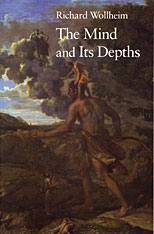

Video games, television, and computers are facts of life for today's children. Anxious parents and teachers, concerned with maintaining the intellectual and social richness of childhood, need to understand their effects. Are we producing a generation of passive children who can't read, who require constant visual and aural stimulation, and who prefer the company of technical instruments to friends and family?
Greenfield believes that to answer this question we should not cling to old and elitist assumptions about the value of literacy. Instead she urges that we explore the results of the new research to discover how the various media can be used to promote social growth and thinking skills. She finds that each medium can make a contribution to development, that each has strengths and weaknesses, and that the ideal childhood environment includes a multimedia approach to learning.
Current studies show us, for example, that television may indeed hinder reading ability under some circumstances. Yet it may also be used to enhance and motivate reading. Television can foster visual literacy, teaching children how to interpret close-ups, zooms, and cutting, and beyond this, how to pick up visual details, orient oneself in space, and anticipate formats and patterns of behavior. Video games teach spatial skills and inductive thinking, and classroom computers, contrary to the popular stereotype, encourage cooperative enterprise.
Timely and optimistic, Mind and Media is filled with unexpected conclusions and practical suggestions for helping our children to thrive in a technological world.

Modern philosophy finds it difficult to give a satisfactory picture of the place of minds in the world. In Mind and World, based on the 1991 John Locke Lectures, one of the most distinguished philosophers writing today offers his diagnosis of this difficulty and points to a cure. In doing so, he delivers the most complete and ambitious statement to date of his own views, a statement that no one concerned with the future of philosophy can afford to ignore.
John McDowell amply illustrates a major problem of modern philosophy—the insidious persistence of dualism—in his discussion of empirical thought. Much as we would like to conceive empirical thought as rationally grounded in experience, pitfalls await anyone who tries to articulate this position, and McDowell exposes these traps by exploiting the work of contemporary philosophers from Wilfrid Sellars to Donald Davidson. These difficulties, he contends, reflect an understandable—but surmountable—failure to see how we might integrate what Sellars calls the “logical space of reasons” into the natural world. What underlies this impasse is a conception of nature that has certain attractions for the modern age, a conception that McDowell proposes to put aside, thus circumventing these philosophical difficulties. By returning to a pre-modern conception of nature but retaining the intellectual advance of modernity that has mistakenly been viewed as dislodging it, he makes room for a fully satisfying conception of experience as a rational openness to independent reality. This approach also overcomes other obstacles that impede a generally satisfying understanding of how we are placed in the world.
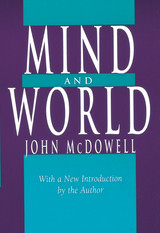
Modern philosophy finds it difficult to give a satisfactory picture of the place of minds in the world. In Mind and World, based on the 1991 John Locke Lectures, one of the most distinguished philosophers writing today offers his diagnosis of this difficulty and points to a cure. In doing so, he delivers the most complete and ambitious statement to date of his own views, a statement that no one concerned with the future of philosophy can afford to ignore.
John McDowell amply illustrates a major problem of modern philosophy—the insidious persistence of dualism—in his discussion of empirical thought. Much as we would like to conceive empirical thought as rationally grounded in experience, pitfalls await anyone who tries to articulate this position, and McDowell exposes these traps by exploiting the work of contemporary philosophers from Wilfrid Sellars to Donald Davidson. These difficulties, he contends, reflect an understandable—but surmountable—failure to see how we might integrate what Sellars calls the “logical space of reasons” into the natural world. What underlies this impasse is a conception of nature that has certain attractions for the modern age, a conception that McDowell proposes to put aside, thus circumventing these philosophical difficulties. By returning to a pre-modern conception of nature but retaining the intellectual advance of modernity that has mistakenly been viewed as dislodging it, he makes room for a fully satisfying conception of experience as a rational openness to independent reality. This approach also overcomes other obstacles that impede a generally satisfying understanding of how we are placed in the world.
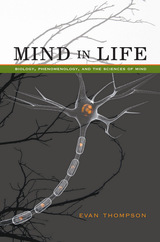
How is life related to the mind? The question has long confounded philosophers and scientists, and it is this so-called explanatory gap between biological life and consciousness that Evan Thompson explores in Mind in Life.
Thompson draws upon sources as diverse as molecular biology, evolutionary theory, artificial life, complex systems theory, neuroscience, psychology, Continental Phenomenology, and analytic philosophy to argue that mind and life are more continuous than has previously been accepted, and that current explanations do not adequately address the myriad facets of the biology and phenomenology of mind. Where there is life, Thompson argues, there is mind: life and mind share common principles of self-organization, and the self-organizing features of mind are an enriched version of the self-organizing features of life. Rather than trying to close the explanatory gap, Thompson marshals philosophical and scientific analyses to bring unprecedented insight to the nature of life and consciousness. This synthesis of phenomenology and biology helps make Mind in Life a vital and long-awaited addition to his landmark volume The Embodied Mind: Cognitive Science and Human Experience (coauthored with Eleanor Rosch and Francisco Varela).
Endlessly interesting and accessible, Mind in Life is a groundbreaking addition to the fields of the theory of the mind, life science, and phenomenology.
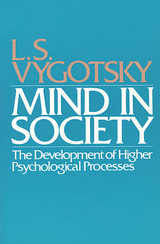
Vygotsky’s sociocultural theory of cognitive development in his own words—collected and translated by an outstanding group of scholars.
“A landmark book.” —Contemporary Psychology
The great Russian psychologist L. S. Vygotsky has long been recognized as a pioneer in developmental psychology. But his theory of development has never been well understood in the West. Mind in Society corrects much of this misunderstanding. Carefully edited by a group of outstanding Vygotsky scholars, the book presents a unique selection of Vygotsky’s important essays, most of which have previously been unavailable in English.
The mind, Vygotsky argues, cannot be understood in isolation from the surrounding society. Humans are the only animals who use tools to alter their own inner world as well as the world around them. Vygotsky characterizes the uniquely human aspects of behavior and offers hypotheses about the way these traits have been formed in the course of human history and the way they develop over an individual's lifetime.
From the handkerchief knotted as a simple mnemonic device to the complexities of symbolic language, society provides the individual with technology that can be used to shape the private processes of the mind. In Mind in Society Vygotsky applies this theoretical framework to the development of perception, attention, memory, language, and play, and he examines its implications for education. The result is a remarkably interesting book that makes clear Vygotsky’s continuing influence in the areas of child development, cognitive psychology, education, and modern psychological thought.
Chapters include:
1. Tool and Symbol in Child Development
2. The Development of Perception and Attention
3. Mastery of Memory and Thinking
4. Internalization of Higher Psychological Functions
5. Problems of Method
6. Interaction between Learning and Development
7. The Role of Play in Development
8. The Prehistory of Written Language

Mind, Matter, and Method was first published in 1966. Minnesota Archive Editions uses digital technology to make long-unavailable books once again accessible, and are published unaltered from the original University of Minnesota Press editions.
This volume of twenty-six essays by as many contributors is published in honor of Herbert Feigl, professor of philosophy at the University of Minnesota and director of the Minnesota Center for the Philosophy of Science. Though the majority of the contributors are philosophers, there are also -- as benefits Mr. Feigl's varied intellectual interests -- representatives of psychology, psychoanalysis, and physics.
The first group of ten essays deals with the philosophy of mind, particularly with the mind-body problem, to which Mr. Feigl has devoted much attention. The eleven essays in the second part are concerned with problems of philosophical method, especially with induction and confirmation. The third part is comprised of five essays on the philosophy of the physical sciences. A biographical sketch of Mr. Feigl and a bibliography of his writings are also provided.
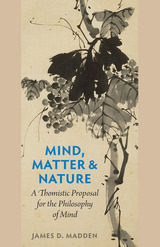
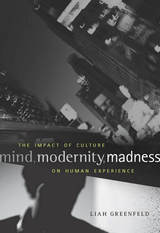
It’s the American dream—unfettered freedom to follow our ambitions, to forge our identities, to become self-made. But what if our culture of limitless self-fulfillment is actually making millions desperately ill? One of our leading interpreters of modernity and nationalism, Liah Greenfeld argues that we have overlooked the connection between egalitarian society and mental illness. Intellectually fearless, encompassing philosophy, psychology, and history, Mind, Modernity, Madness challenges the most cherished assumptions about the blessings of living in a land of the free.
Modern nationalism, says Greenfeld, rests on bedrock principles of popular sovereignty, equality, and secularism. Citizens of the twenty-first century enjoy unprecedented freedom to become the authors of their personal destinies. Empowering as this is, it also places them under enormous psychic strain. They must constantly appraise their identities, manage their desires, and calibrate their place within society. For vulnerable individuals, this pressure is too much. Training her analytic eye on extensive case histories in manic depression and schizophrenia, Greenfeld contends that these illnesses are dysfunctions of selfhood caused by society’s overburdening demands for self-realization. In her rigorous diagnosis, madness is a culturally constituted malady.
The culminating volume of Greenfeld’s nationalism trilogy, Mind, Modernity, Madness is a tour de force in the classic tradition of Émile Durkheim—and a bold foray into uncharted territory. Often counter-intuitive, always illuminating, Mind, Modernity, Madness presents a many-sided view of humanity, one that enriches our deepest understanding of who we are and what we aspire to be.
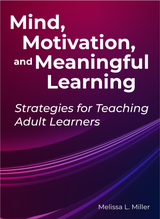
Mind, Motivation, and Meaningful Learning: Strategies for Teaching Adult Learners provides a blueprint that academic librarians can apply to their instructional design that facilitates a change in students’ motivation and learning strategies. It provides the tools necessary to teach learners to identify, evaluate, and apply appropriate cognitive, learning, and motivation strategies based on course content and a deeper understanding of the metacognitive component of meaningful learning. Five chapters explore the theories behind adult learning, culminating in a seven-unit curriculum scalable to a variety of learning domains complete with lesson plans, activities, assessments of the learning goals, and student reflections.
Mind, Motivation, and Meaningful Learning can help you identify the components of academic learning that contribute to high achievement; help students learn and practice effective learning and study strategies that lead to improved self-efficacy, self-regulation, and knowledge transfer; and improve instructional design for student, instructor, and academic teaching librarian success.
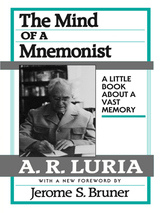
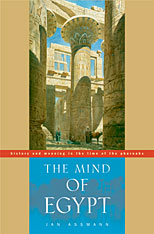
Reviews of this book:
Magnificent' Assmann asks what meaning Egyptians obtained from their own constructions of their history. How did they incorporate the legacy of the past into the present. Using three approaches - archeological, mythic, and epigraphic or iconographic - Assmann takes us a chronological journey, starting with the formation of the unified state in about 3100 BC and going through the three great kingdoms. He ends in the late period with the final whimpers of Egyptian civilization. Assmann has looked closely into the mirror of the ancient intangible with telling effect. Every student of early civilization has something to learn from these pages, which will help cure us of intellectual myopia.
--Brian Fagan, The Los Angeles Times
Reviews of this book:
Assmann is attempting something far more ambitious than all the conventional books on Egypt. What he attempts to do is pen a psychological portrait of Egyptian culture. He asks questions that are normally avoided by ancient historians: What motivated the culture? How did it view the relationship between the individual and the universe surrounding him or her? What explanations did it provide for worldly events and reversals of fortune? The result is impressive. The Mind of Egypt marks the culmination of years of questioning about the past and the ways it can be conceptualized. Jan Assmann is close in some ways to being the Beethoven of Egyptology. The Mind of Egypt is a singular book that will provoke debate for a generation to come. It is essential reading for those who wish to call themselves Egyptologists, and it is an important intellectual contribution to the whole question of what constitutes history and historiography.
--John Ray, The American Scholar
Reviews of this book:
[This book's] aim--to examine the mainsprings of Egyptian civilisation and thereby to provide a 'psychological' portrait of Egyptian culture--is truly fascinating.
--History Today

A Mind of Her Own: Helen Connor Laird and Family 1888–1982 captures the public achievement and private pain of a remarkable Wisconsin woman and her family, whose interests and influence extended well beyond the borders of the state. Spanning almost a century, the history speaks to the way we were and are: a stridently materialistic nation with a deep and persistent spiritual component.
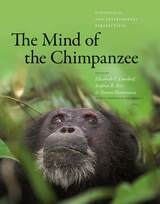
Understanding the chimpanzee mind is akin to opening a window onto human consciousness. Many of our complex cognitive processes have origins that can be seen in the way that chimpanzees think, learn, and behave. The Mind of the Chimpanzee brings together scores of prominent scientists from around the world to share the most recent research into what goes on inside the mind of our closest living relative.
Intertwining a range of topics—including imitation, tool use, face recognition, culture, cooperation, and reconciliation—with critical commentaries on conservation and welfare, the collection aims to understand how chimpanzees learn, think, and feel, so that researchers can not only gain insight into the origins of human cognition, but also crystallize collective efforts to protect wild chimpanzee populations and ensure appropriate care in captive settings. With a breadth of material on cognition and culture from the lab and the field, The Mind of the Chimpanzee is a first-rate synthesis of contemporary studies of these fascinating mammals that will appeal to all those interested in animal minds and what we can learn from them.
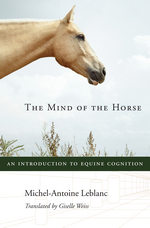
Horses were first domesticated about 6,000 years ago on the vast Eurasian steppe extending from Mongolia to the Carpathian Mountains. Yet only in the last two decades have scientists begun to explore the specific mental capacities of these animals. Responding to a surge of interest in fields from ethology to comparative psychology and evolutionary biology, Michel-Antoine Leblanc presents an encyclopedic synthesis of scientific knowledge about equine behavior and cognition. The Mind of the Horse provides experts and enthusiasts alike with an up-to-date understanding of how horses perceive, think about, and adapt to their physical and social worlds.
Much of what we know--or think we know--about "the intelligence of the horse" derives from fragmentary reports and anecdotal evidence. Putting this accumulated wisdom to the test, Leblanc introduces readers to rigorous experimental investigations into how horses make sense of their world under varying conditions. He describes the anatomical and neurophysiological characteristics of the horse's brain, and offers an evolutionary perspective by comparing these features with those of other species. A horseman himself, Leblanc also considers the opinions of renowned riding masters, as well as controversies surrounding the extraordinary powers of the horse's mind that have stirred in equestrian and scientific circles.
Although scientists understand more today about how horses think than at any time in our species' long acquaintance with these animals, much remains in the dark. The Mind of the Horse brings together the current state of equine research and will likely stimulate surprising new discoveries.
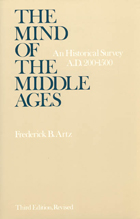
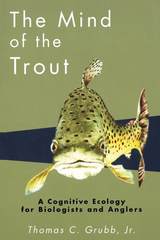
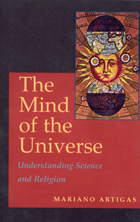
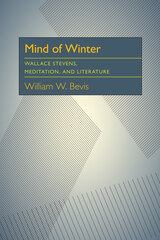
Bevis addresses the most puzzling and least studied aspect of Wallace Stevens’ poetry: detachment. Stevens’ detachment, often associated by readers with asceticism, bareness, or withdrawal, is one of the distinguishing and pervasive characteristics of Stevens’ poetic work. Bevis agues that this detachment is meditative and therefore experiential in origin. Moreover, the meditative Stevens of spare syntax and clear image is in constant tension with the romantic, imaginative Stevens of dazzling metaphors and exuberant flight. Indeed, for Bevis, Stevens is a poet not of imagination and reality, but of imagination and reality, but of imagination and meditation in relation to reality.
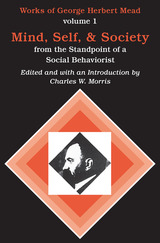
"If philosophical eminence be measured by the extent to which a man's writings anticipate the focal problems of a later day and contain a point of view which suggests persuasive solutions to many of them, then George Herbert Mead has justly earned the high praise bestowed upon him by Dewey and Whitehead as a 'seminal mind of the very first order.'"—Sidney Hook, The Nation
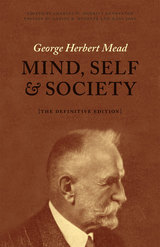
This collection gets to the heart of Mead’s meditations on social psychology and social philosophy. Its penetrating, conversational tone transports the reader directly into Mead’s classroom as he teases out the genesis of the self and the nature of the mind. The book captures his wry humor and shrewd reasoning, showing a man comfortable quoting Aristotle alongside Alice in Wonderland.
Included in this edition are an insightful foreword from leading Mead scholar Hans Joas, a revealing set of textual notes by Dan Huebner that detail the text’s origins, and a comprehensive bibliography of Mead’s other published writings. While Mead’s lectures inspired hundreds of students, much of his brilliance has been lost to time. This new edition ensures that Mead’s ideas will carry on, inspiring a new generation of thinkers.
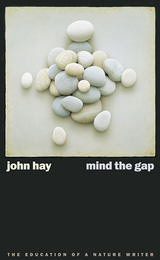

The exodus of millions of African Americans from the rural South is a central theme of black life and liberation in the twentieth century. A Mind to Stay offers a counterpoint to the narrative of the Great Migration. Sydney Nathans tells the rare story of people who moved from being enslaved to becoming owners of the very land they had worked in bondage, and who have held on to it from emancipation through the Civil Rights era.
The story began in 1844, when North Carolina planter Paul Cameron bought 1,600 acres near Greensboro, Alabama, and sent out 114 enslaved people to cultivate cotton and enlarge his fortune. In the 1870s, he sold the plantation to emancipated black families who worked there. Drawing on thousands of letters from the planter and on interviews with descendants of those who bought the land, Nathans unravels how and why the planter’s former laborers purchased the site of their enslavement, kept its name as Cameron Place, and defended their homeland against challengers from the Jim Crow era to the present day.
Through the prism of a single plantation and the destiny of black families that dwelt on it for over a century and a half, A Mind to Stay brings to life a vivid cast of characters and illuminates the changing meaning of land and landowning to successive generations of rural African Americans. Those who remained fought to make their lives fully free—for themselves, for their neighbors, and for those who might someday return.
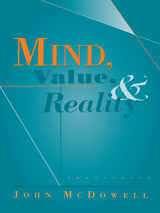
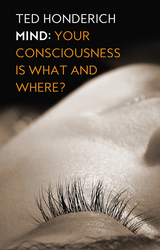
Unlike other theories, actualism differentiates among the three sides of consciousness—consciousness that is seeing, consciousness that is thinking, and consciousness that is wanting. Consciousness in seeing is not an image or picture in your head, but the existence out there of a real but subjective thing, dependent on both the objective physical world out there and on you as a person. In its attention to the concrete, actualism is becoming increasingly popular among philosophers, psychologists, and neuroscientists who had previously declared an urgent need for a new theory.
Honderich’s readable, understandable, and unpretentious writing lays out these bold concepts and complex thoughts with clarity and verve. He reinvents our understanding of ourselves, our consciousness, and our mind.
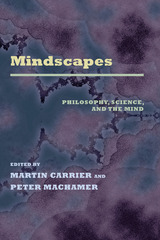
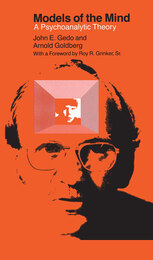
Gedo and Goldberg apply their theory to four classic psychoanalytic case studies to demonstrate its effectiveness: Freud's Rat Man, his Wolf Man, the case of Daniel Paul Schreber, and a case of arrested development. For each of these cases the authors show how it would have been both possible and advantageous to apply a variety of different theories as facts about each continued to accumulate.
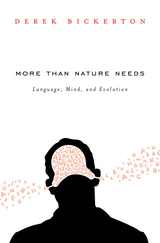
The human mind is an unlikely evolutionary adaptation. How did humans acquire cognitive capacities far more powerful than anything a hunting-and-gathering primate needed to survive? Alfred Russel Wallace, co-founder with Darwin of evolutionary theory, saw humans as "divine exceptions" to natural selection. Darwin thought use of language might have shaped our sophisticated brains, but his hypothesis remained an intriguing guess--until now. Combining state-of-the-art research with forty years of writing and thinking about language evolution, Derek Bickerton convincingly resolves a crucial problem that both biology and the cognitive sciences have hitherto ignored or evaded.
What evolved first was neither language nor intelligence--merely normal animal communication plus displacement. That was enough to break restrictions on both thought and communication that bound all other animals. The brain self-organized to store and automatically process its new input, words. But words, which are inextricably linked to the concepts they represent, had to be accessible to consciousness. The inevitable consequence was a cognitive engine able to voluntarily merge both thoughts and words into meaningful combinations. Only in a third phase could language emerge, as humans began to tinker with a medium that, when used for communication, was adequate for speakers but suboptimal for hearers.
Starting from humankind's remotest past, More than Nature Needs transcends nativist thesis and empiricist antithesis by presenting a revolutionary synthesis--one that instead of merely repeating "nature and nurture" clichés shows specifically and in a principled manner how and why the synthesis came about.
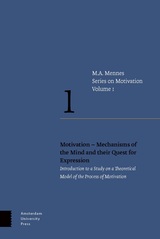
And yet, it provides a surprisingly detailed account of how motivation works, which appears to be supported by findings from theories and research from current literature. In an unparalleled analysis, the Model seamlessly integrates these major theories into a consistent comprehensive approach to motivation, explaining not only the essentials of each theory, but also providing explanations for controversies that have hitherto remained largely unresolved. Motivation appears to be an 'inner dialogue', a stepwise, partly cyclical Process in which we deal with our surroundings that often interfere in our ambitions, our wishes and desires. Deep personal insights into those ‘Mechanisms of the Mind’ reveal implications that may lead to a fundamental, new understanding of the origins of many disturbing issues we witness in present-day society, including neglect and denial, intolerance, discord and polarization.
READERS
Browse our collection.
PUBLISHERS
See BiblioVault's publisher services.
STUDENT SERVICES
Files for college accessibility offices.
UChicago Accessibility Resources
home | accessibility | search | about | contact us
BiblioVault ® 2001 - 2024
The University of Chicago Press









